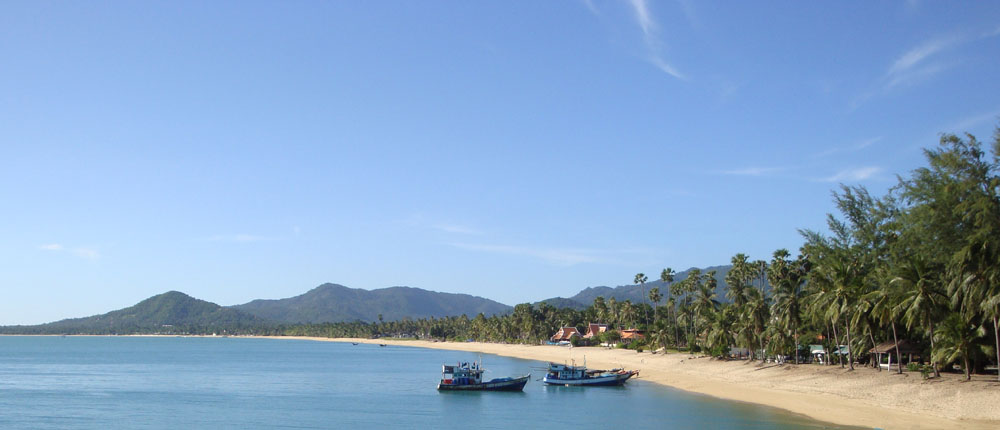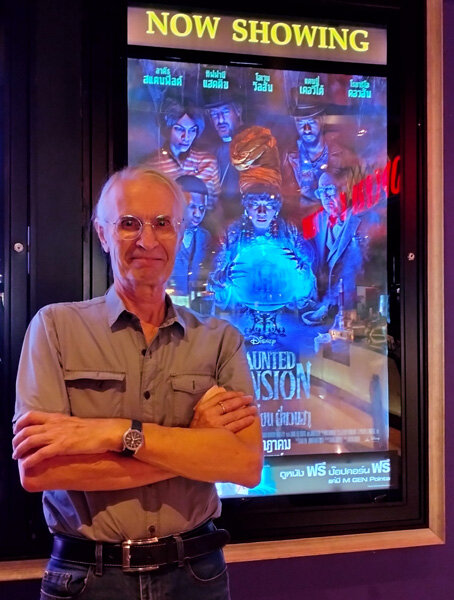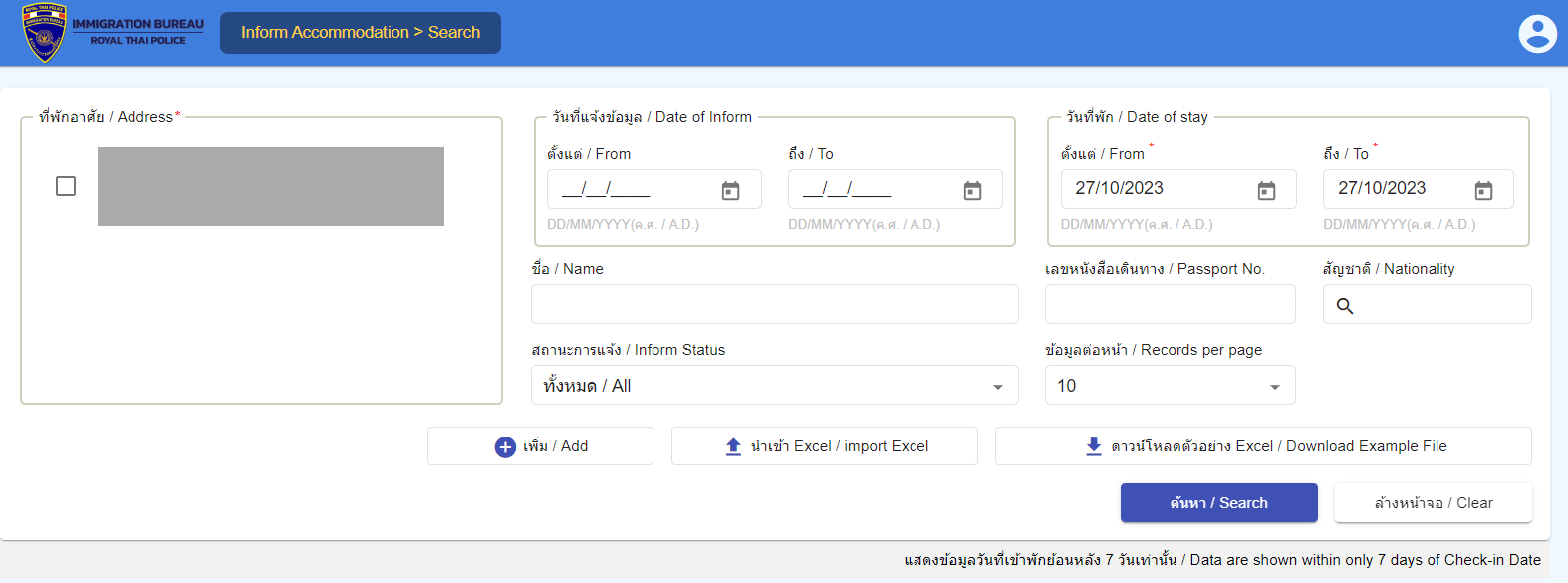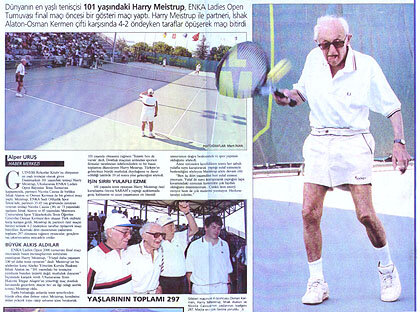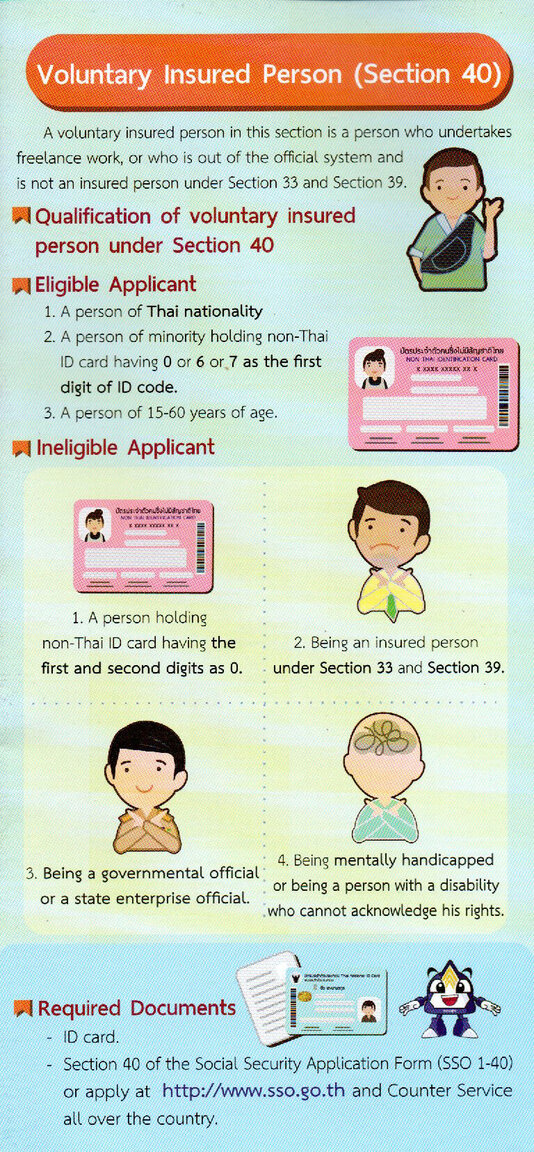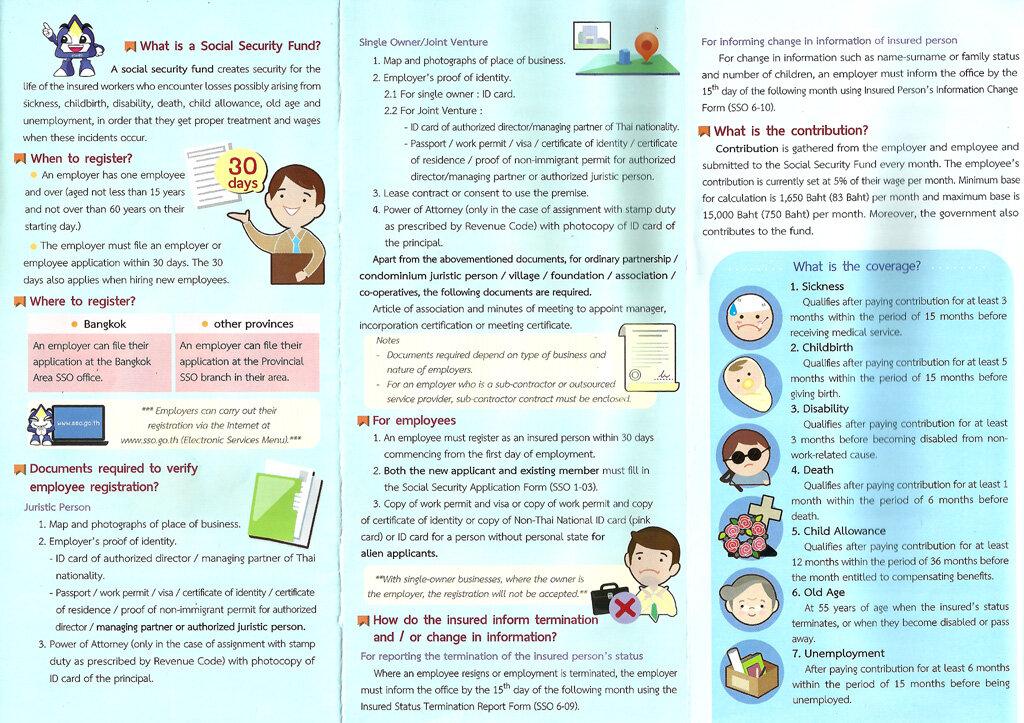-
Posts
12,513 -
Joined
-
Last visited
Content Type
Events
Forums
Downloads
Quizzes
Gallery
Blogs
Everything posted by khunPer
-
Yes, and thank for your comment. My lovely girlfriend suggested a child savings account in a bank, but I knew from my home country that bank-interest rate is a bad investment for the coming up to 18 years, which is the child-saving term in my home country. My child in Thailand is my first, so my knowledge is second hand and from news media, but a bank interest rate lower than inflation rate will by normal sense and calculation result in a loss in buying value. I said, that I instead would place a lump sum in a plot of land, and then I could deposit 500 baht a month in a savings account, so there would also be some cash. Land can in general double in value in 10-20 years – sometimes faster – and with the ideal 2% consumer inflation, consumer prices will in average double in about 35 years, so land is a gain, fixed bank interest at around 1.5% is a loss. My girlfriend agreed and found a nice plot of farmland for a cheap price, as the sellers needed fast money. Some in her family rented the land for farming – cheap rent, so they also got helped, as the value gain was the idea of long-term investment – the small fee from the land were saved, in the beginning as cash, later invested. Land prices varies a lot from area to area, and also fee for rent, which can either be a share of the harvest or a fixed sum of money per rai. I decided for the lower end of fixed sum at that time, which was 500 baht per rai – today it's more likely around 1,000 baht – upper end was 1,000 baht at that time, which today is between 1,500 baht and perhaps up to 2,000 baht. In general you can count like 1% to 1.5% of the investment comes back in annual rent – of course, depending of the land price – so it's actually as good as a fixed term savings account in a bank. However, the difference is, that it's fairly easy to withdraw cash from a bank, whilst selling a plot of land can take long time. In my daughter's case was the interest higher, as she got her land very cheap. I decided to change from savings account to so-called Fund books – when I learned more about investment possibilities in Thailand – where I could find some fairly safe funds with a tax benefit – i.e. not tax at all, if the fund were kept for 5 years – called LTF. The tax-free periode since changed to 7 year. So the last 5 years, which became 7 years, I could not use LTFs. Instead af a normal bank account, we – because my daughter was old enough to understand about saving and investment – decided to invest in SET stocks. So we cashed out the LTFs that had matured and bought stocks instead, I suggestions and she chosed which of them she wanted. The deal was that she could have half the dividends, and the other half should be re-invested together with the land rent and my still monthly 500 baht in "child savings". This way, she could both create interest in saving and investing, and also get a cash benefit from her efforts. She is 18 tears ole now, so two more years to go; then she can herself decide what she want to do; i.e. cash out and sell land, or... Historically results are not a prediction of the future – investment can be a risky business – but can be a guide. In my daughter's case the land value has increased between 4 times to 8 times, based on fast sale and actual trading prices per rai land in the area. 4 times gain equals a value-double up in 10-years; but remember, we got a good deal when buying the land. The rent has been as high as 4% per year and the last two years little higher – again, due to the low buying price – so around 65% of the initial land value has also been placed in the stock market over the years. The affordable 500 baht per month, is 6,000 baht per year; so, over a 20-year period it's another 120,000 baht, which during the years has increased by both interest, dividends and hopefully some value gain – "hopefully", because the SET is little low at the moment, both due to after effects of the Covid-19 and the change in government, the last has been the worst for the Thai stock market. The Thai Consumer Price Index has gone up from index 75 to index 108 during my daughter's child-saving period, a circa 44% increase; i.e., you in average need 44% more money today to buy the same, as when the child saving period started. A fixed term bank deposit with average 1.5% annual interest would only have result in a total capital increase of 30%. The investment in land together with the monthly savings, have all together increased with 277% until now (over 18 years) – when using the lowest land value – and 500% or more, if land can be sold for a high end price. In general, land is always considered an excellent investment. Hope this can help you, feel free to ask, if you need more information...🙂
-
In my case as retired with retirement extension of stay, the immigration officers just wished to check that I lived on the given address; and take a photo of me in front of the house, with house number visible, while I'm holding my passport and with one of the officers standing next to me...
-
It's individual and depends on the partner, but I can tell you what I have done, for your inspiration: I'm also in my early half of my 70s and my girlfriend is 32 years younger, we been together now for almost 20 years. Firstly I taught my partner about how to save up – i.e. Henry Ford's advice: "It's not the money you earn that makes you rich, it's the money you do not spend." The is to my knowledge nothing like trust funds or like, which can freeze the investment for a number of years, but there are several retirement saving option in the various banks. However, they are often linked with a life-insurance and might be too costly compared to other possibilities, which however don't stop the partner from spending the savings (why the first clause is important). Together my girlfriend and I decided to buy some land for her. In my opinion it's little more difficult to just let go than cashing bank savings or fund book investments (mutual funds). Furthermore, land can produce an ongoing small income on top of increased long-term value. The income can be from farm land – which is a good long-term investment – as a part of the harvest or a fixed annual fee per rai; at the moment around 1,000 baht, but depending of area and farming value of the land. So depending of land price the outcome can be in the level of 1-1,5% per year. Land would normally have an average long term value increase in the level 4-8 percent per year. Additionally we decided for savings in fund books – it's mutual funds offered by the banks with a variety of possibilities, including both accumulating fund and dividend paying funds. You can find some fairly safe funds and start with a small amount – 5,000 baht or less – which can be topped up annually or in whatever term, also in quite small lots. There are both money market funds, equity funs and foreign markets. The higher potential gain, the higher risk, as it often is with investment. We decided to avoid foreign markets to avoid currency exchange, as the fund are going to be used in local currency; i.e. Thai baht. After some years we changed most of the funds to real stock market with a SET (Stock Exchange of Thailand) trading account through a bank. The first stocks I helped with choosing, but my girlfriend go so interested in investment that she began to follow news and find potential stocks herself. Again based on the very first – learn about savings and get interested – she is actually doing well and also saving for investment from her own income. Many Thai stocks are good dividend payers – but little slower in value increase – so with the right mix you can (easily) get about 4-5% dividends after 10% withholding tax per year. You can for example use this principle for dividends: "Never spend more than half of you income, the other half you save up." Then you feel there is both an outcome of your efforts and you still increase the savings. Capital gain from SET is (so far) free of income tax. We did similar for child savings for our daughter; so far it has worked well...
-

TM30 website "view report" / TM47 type detail
khunPer replied to SooKee's topic in Thai Visas, Residency, and Work Permits
90-days reporting is a different system. -

Online notification of TM 30
khunPer replied to zenobit's topic in Thai Visas, Residency, and Work Permits
You can log out and log in again. Then use the search function where your table-line with registration will appear. Print the line. My – extremely strict Koh Samui – immigration office accepts that, they actually also check online and will find you in the system. -

Do you look older than your age?
khunPer replied to georgegeorgia's topic in ASEAN NOW Community Pub
I'm pretty sure that is Crocodile Dundee. Pic to fuzzy to tell age but looking fit! Thanks, and sure, it's fuzzy, only small images allowed for profile photos; fuzzy appearance might be a benefit in some cases... Could of course also be that I looked 15-20 years older 15 years ago...🤔 However, I don't mind sharing a bit less fuzzy image of my age now, where I might look as old as I appeared before...😀 -
Ed Sheeran is coming, his present +–=÷× tour is actually worth hearing/watching live...👍 (My image from his concert in Copenhagen) Quite a number of big names pass Bangkok with a concert...👍
-

Do you look older than your age?
khunPer replied to georgegeorgia's topic in ASEAN NOW Community Pub
The girls say that I apparently don't get older and looks the same, as 15 years ago – it's important what the girls think, even when they are getting too old – so in principle, if the girls are trustworthy, the me shall look about 15 years younger than my age... It's the present me in my profile image – how old do I look...😎 What age I feels like, is another story...😀 -

Online notification of TM 30
khunPer replied to zenobit's topic in Thai Visas, Residency, and Work Permits
I use the new online TM30 report system – this version is only about a month old – you cannot register a start date before the actual date. You don't need to use the tablet-form to register your stay. When you have registered (your wife) as house master, there is a very simple form to add new residents of the house. When logging in you'll start with the search form, click on +Add at lower left... Then the "Add"-form opens. Mark the house in upper left box, fill in the form – arrival date will be date of filling the form – and "Save". -

Thais are largest group of dead foreigners in Israel
khunPer replied to webfact's topic in Thailand News
Another news story today says that the Thai death toll is 33... Yesterday the news reported that 33 French had died in the Israel-Hamas war. -

No Need for 90 day's reporting ?
khunPer replied to spetersen's topic in Thai Visas, Residency, and Work Permits
Depending on the local immigration office. At some immigration offices the 90-days report period restarts from zero when doing an annual extension – "my" office do that – whilst by other immigration offices the 90-day periods are counted from original entry date, independent from the extension of stay. -
Apparently it seems so...
-
You apparently seems to have excellent good energy and lots of positive waves...
-
For my half Thai daughter, I decided for a bilingual (also called English Program) primary school – up to P6, equivalent to year 7 international – with IGCSE curriculum and native English speaking teachers for the subjects taught in English. With a true bilingual school you get both Thai and English – in my area Chinese was a third foreign language – and you also get the Thai culture, which is important if the future would be in Thailand. We changed after P6 to international IGCSE year 8. Thai language was still a subject all the way through the international levels, but limited in number of hours per week, and my daughter got an A in both Thai and English. My daughter had originally only has the Thai future as option – i.e. only Thai citizenship, as I'm not married to her mother, my girlfriend – so Thai language and culture was important. An EU-court changed that later, so she could get dual citizenship and thereby more options to choose from in the future. IGCSE-certificate has no real value for primary level – internation up to Y7 – the bilingual school can be half price of the IGCSE-approved international school; the certificate approval is the expensive part. While for middle school, Y8-Y11, the final IGCSE-certificate is very valuable and entrance to either continuing to Cambridge A-level or with IB. Might be valuable for your daughter to either consider a bilingual school, and/or extra tuition in Thai.
-

I wish to share personal photos with everybody : Prayut
khunPer replied to webfact's topic in Thailand News
Cool...👍😎 -
Normally buyer pays transfer fee; stamp duty negotiated, but can also be buyer; seller pays tax. The uncle will as seller need to pay business tax of 3.3% for the property, if he has owned the property less than one year and had his name registered in the Blue House Book, or has owned the property less than five years without his name in the Blue House Book. In case of business tax there is no stamp duty. Furthermore there will be a withholding tax to pay by seller. You can use the tax-calculator HERE.
-
A number of studies actually find that enjoying life is a major factor for longevity...🥳 Longevity is most likely a combination of many things; including both genes, life-style and joy. My father said that enjoy life is the most important. He didn't get involved in healthy life-style – however, he never smoked – he enjoyed a glass of wine, preferably two, with his dinner; he liked a glass of cold beer; he used butter and sugar; he didn't think much of what he was eating or having a healthy diet, but he liked vegetables to be part of a major meal; he never ate much, and was never overweight; and in general he was always in a good mood and enjoyed life. Also important surely is that he walked a lot – having a dog helped – and he walked fast. He furthermore played piano every day and he forgot to stop playing tennis; he continued at least twice a week and preferably two hours. At older age he preferred double – often playing against his 14 years younger wife, in the other team. The original double tennis-partners however got old and too slow, so they let their sons take over. And after tennis he always enjoyed a cold beer. So, it seems like combination of several things are important for longevity, including both enjoying life and some level of activity, which also must be enjoyable, according to my father...👍 My mother however, cared a lot about healthy life-style. She complained quite a bit over my father's not so healthy life-style, and even that she was active in sport – both tennis and figure ice skating – she died unexpected from a cancer when she was 90 years old. My father played in an exhibition double tennis match in an ATP-tournament when he was 101 years old. His last played tennis was when he was 104. He lived till he was 104½, where he said to me: "Now it's not fun anymore, I begin to need help for too much". I knew, what was happening. A week later he passed away when sleeping, while I was sitting next to him and holding his hand.
-
No, folkepension is fully funded by the present tax-payers; it's not based on savings. There is an additional small work life-pension by law, it's called ATP – "Arbejdsmarkedets tillægspension", which translates to: "Labour Market Supplementary Pension" – where the employee pays a small tax-deducted amount depending of worktime; i.e. by hours, half-time or full-time. The amount is just under $14 per month for a full time worker, the employer pays double as much, so in total almost $42 per month. The money goes into a foundation and are invested, the dividends, gains and interests are paid as life-long supplement pension, which is around 27,300 dkk ($3,900) in 2023 for the whole year, minus income tax; after tax it's around $2,400 or $200 per month. All other pensions are private, which can be part of an employment agreement. However, quite a number of people never saved up for their retirement and they lives from folkepension and often also the ATP at some or other level.
-
Denmark: At the moment you can retire at 67 (born 1st July 1955 or later), but the age will go up over time, for example 68 years from 2030(born 1st January 1963 or later), 69 from 2035 and so on. It's based on having 15 years in average to live after retirement. To be eligible for full government pension – called "folkepension", i.e. "peoples retirement pension" – you need to have been living in Denmark for at least 3 years between the age of 15 and retirement age. If you have not lived in the country for 40 years between the age of 15 and retirement age, you will not receive the full pension, but a fractional pension in 40th, depending of the number of years you have lived in the country; for example 30/40th of the full rate, if you have lived only 30 years in Denmark. The folkepension is based on a base sum, which is 6,694 dkk (Danish kroner), which equals about $950 ($1 = 7.04 dkk), before income tax. After tax it's 5,562 dkk (circa $790) with normal personal allowance deductions. The folkepension is regulated, so it partly follows other salaries, but not fully and with a delay (I think it's two years). So in years with high inflation, you have less buying power. If you don't have other income, you can get extra government pay up to 7,745 dkk ($1,100) as single, or 3,963 dkk ($550) each when married, before income tax. The income tax depending on where you live in the country, but is in general around 38 % for retirees, so after tax around $680 extra for a single, or $340 each when married. Additional income will be partly deducted in the surplus. Furthermore, low incomes without major savings, can get an additional "old age cheque" of 19,200 dkk ($2,700) before tax, once in a year; i.e. around $1,690 after average income tax. If you wish to move abroad to a country outside EU (European Union) and EEC (European Economic Community), you will only get the base sum. So if you move to Thailand – like me – you will only get 5,562 per month (in 2023) – provided you, like I, has lived at 40 years or longer in Denmark – which equals to 28,000 baht per month by the at moment quite favorable exchange rate (1 dkk = 5.10 thb). If you have no other income or private retirement pensions, it's small money, but still doable with en modest life-style; however, provided that you one or other way had the savings for deposit to extend your stay based on retirement or marriage. So, moving to Thailand as a Dane with nothing more than the base government pension for living costs, is pretty much a question of health, as you need to take any fees for a health insurance out of the budget. When you move out from Denmark, you are not and longer covered by the free government health service. You need to permanently move back to be covered again. It's doable to retire in Thailand on the folkepension-base with a modest life-style, but I recommend Danes to think twice, before they do it without any further income or savings.
-
I tried to call for an ambulance a few months ago – a young turist girl had fallen and hit her head hard and her foreign friends cried for an ambulance – in my area 1669 is an automated reply telling numbers to press for service in different languages. I pressed for English, but the operater seem not to understand the location. Then I tried tourist police, whom could not help with an ambulance. 191 didn't work either. Ended up having a songthaew to drive her and her friends to a nearby hospital. Now I store the local hospital's number for 24 hour emergency service instead in my phone, probably faster service.

